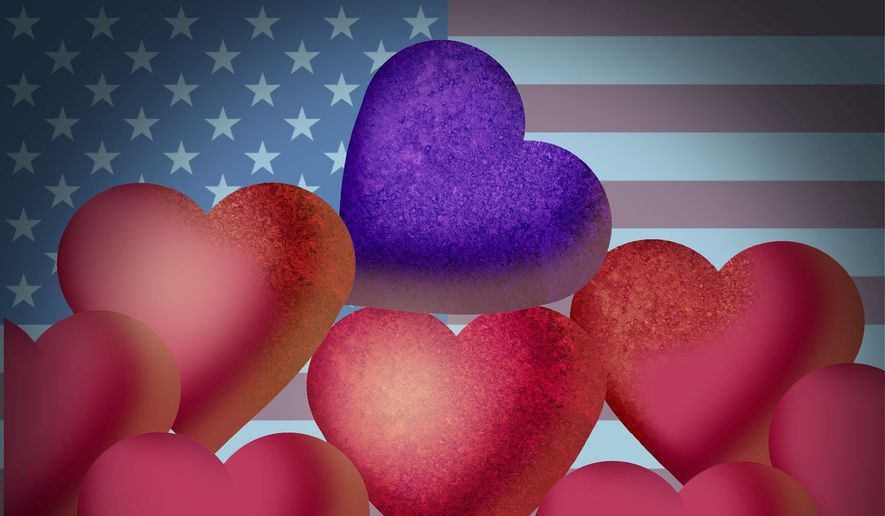OPINION:
America appreciates, honors and praises veterans who serve our country. But standing out of the ceremonial limelight, and always close by, are the millions of loved ones who care for those veterans. Our service members have returned home with disabling illnesses and injuries that often alter their lives — and the lives of their loved ones — forever. I am one of the 5.5 million military caregivers who witness and endure the long-term consequences of war in a way that many Americans will never experience.
As a full-time military caregiver to my husband for the past five years, I was proud to be selected as one of the 2015 Elizabeth Dole Foundation Fellows. In the week before Memorial Day this year, the foundation hosted a summit in Washington, D.C. to share the progress made by the foundation and its partners in assisting the military caregiver community over the last year. I joined 71 other Dole Caregiver Fellows to listen to prominent leaders discuss how organizations across America can most effectively assist our nation’s military caregivers as they adjust their lives to care for a wounded veteran. The other fellows and I also had the opportunity to share our own stories and perspectives. I was deeply inspired by the other fellows, particularly as I listened to them on stage, telling the audience about their caregiving experiences. I, too, recounted some of my experiences caring for my husband since he returned severely wounded from Afghanistan in 2010.
While military caregivers have many concerns in common, each of us faces unique circumstances that challenge us daily. As recounted many times during the summit, when a veteran returns home with serious injuries or illnesses, military caregivers experience dramatic changes in their lives. First lady Michelle Obama confirmed this during the summit, by reaffirming that a caregiver’s life can be “flipped upside-down in an instant.”
After serving two tours as a combat medic in Afghanistan and in the Gulf War, my husband Leonard arrived home with severe mental and physical injuries. Although he has come home to me, he is not really present; emotionally, he is still in Afghanistan. Now, we both battle his ongoing rage, outbursts of profanity, abiding depression and thoughts of suicide. Like other caregivers, I took on my role suddenly, and through determination have been learning along the way. And I, like most military caregivers, have experienced many losses — my wages as an educator, my professional identity and support system, the intimacy and camaraderie that my husband and I once had as a couple, and time to spend with friends and family, to name a few. My beloved husband returned a changed man, and we, in turn, were changed as a couple. Quite simply put, I have lost the life we once had together.
As Mrs. Dole describes it, caregiving has become a societal issue and she challenges our nation to respond. Who pays for a caregiver’s lost wages? Where can caregivers receive training and ongoing psychological counseling? How can we better provide respite time away from the job of 24/7 caregiving?
Since becoming a fellow, I have been impressed with the efforts of the foundation and partners such as The Washington Times in promoting awareness of these important questions. And I was heartened to hear from key leaders at the summit, disclosing plans that are in progress to provide more support to military caregivers. While there is still a long road ahead of us, the foundation and its partners recognize that we need to work quickly to achieve progress, as caregivers provide such valuable support to our wounded warriors.
Leonard shared his perspective with these powerful words: “We were not prepared to deal with the types of injuries I sustained in combat. The powerful affect these wounds have on my emotions challenges us every day. I rely a lot on my wife to sustain us while I recover, and I’m glad Americans are starting to see the important role that she and other caregivers play in the lives of those of us who served.”
Military caregivers do their best to help our military men and women reconstruct their lives before they were injured and gain the skills and strength needed for a productive future. These efforts indeed take a village, and the most critical resident of that village is the caregiver. Americans should honor veterans every day for their sacrifice — military caregivers make selfless sacrifices that should not go unrecognized either. Only when America realizes the importance of their roles can the caregiver be provided the help they need to assist their wounded warriors.
• Precious Goodson is a Dole Caregiver Fellow in Florida.




Please read our comment policy before commenting.